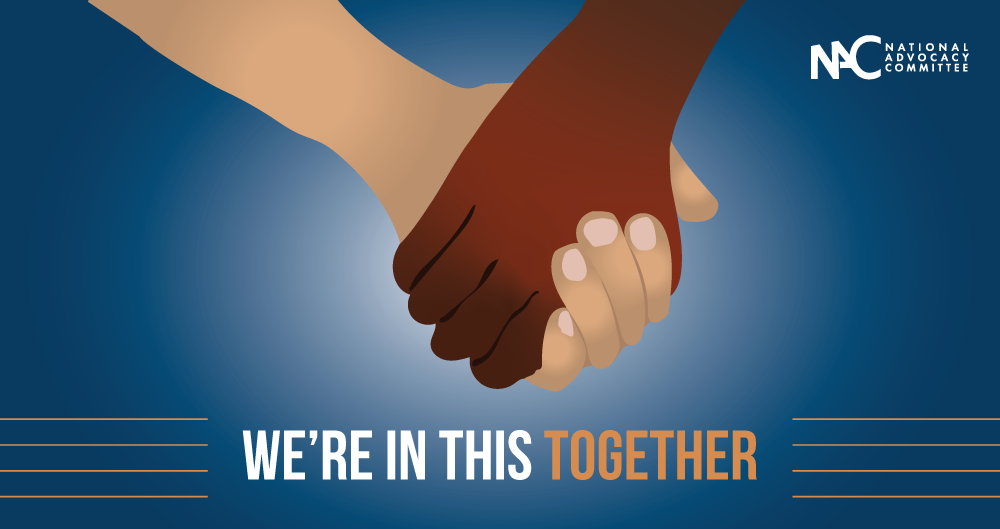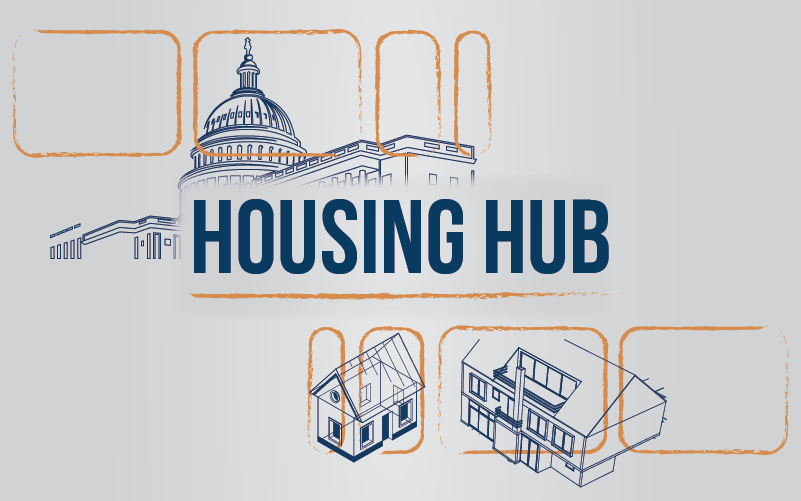We are in this together
Celebrating NAHREP familia, cultura, politics, and grassroots action
Que onda mi gente?!

I’m sitting here wanting to update you about what’s happening with the stimulus bill, what’s happening with the Paycheck Protection Program or what the new changes have been made to the Community Reinvestment Act. But, if you’re anything like me, it’s been tough to think about much else as a fire has been lit throughout the nation, and by the looks of it, the world. Like many of you, I’m heartbroken, outraged, frustrated, and all of those emotions that have collectively swept up our nation. And, in the midst of the sadness and anger that many of us felt when we saw the painful images of George Floyd in police custody, we have been bombarded by the media with images of businesses, already hit by this economic crisis, being vandalized and destroyed. Despite all of this, the intensity and magnitude of the response, particularly among our nation’s young people, has inspired a greater feeling within me: hope.
It’s hard to grapple with the idea that it has only been 56 years since the federal Civil Rights Act of 1964. Many still remember segregation in hotels, theaters and restaurants, because they lived through it. It was a social movement, much like the one we are seeing today, that brought about that change. Today, that is why I’m hopeful. As a community, we are having vulnerable and meaningful dialogues about structural racism in a way that I have not seen before. The millions of peaceful protestors have created a powerful message that can be seen around the world, far outweighing the small minority of individuals committing acts of vandalism. More people are asking police to join them in their marches, to take the knee in solidarity with the communities that are hurting, and those images have been more healing to watch than anything anyone can say or do. Something is changing in our nation, something is brewing. I can only hope that this time, we will actually do something to truly reform the criminal justice system, putting an end to the criminalization of communities of color, police brutality and racial violence. The one thing we each can do now is listen, understand, and stand up in solidarity with Black Americans for what is right as active allies.
If you’re upset about what’s happening, but you can’t or don’t want to go march because of the fear of COVID-19, there is something simple that you CAN do – VOTING.
And no, I’m not just talking about the presidency or members of Congress. While those are important too, politics is always local. While fewer voters turn out for local elections, the vast majority of change begins right in your community. Having worked in the federal government, I am well aware of the challenges of Washington D.C. If we’re looking for the federal government to do something about racism in the local police force, we might be waiting a while and quite frankly, the nation cannot wait any longer. It also takes leadership at the local level to make this sort of change happen. Some of the key governmental offices that most influence the criminal justice system are at the local and state level. In some cases, it’s the city and county executives that appoint police chiefs and in other cases it’s the voters that elect the local sheriffs. Leadership in who leads police departments matter. For example, we saw this weekend Art Acevedo in Houston and Sheriff Chris Swanson in Flint Michigan give impassioned speeches acknowledging the anger of protestors, marching in solidarity with them, and doing their part to begin healing the pain many communities of color feel towards the police. We need leaders who are empathetic and who gain the trust of the people they swear to protect.
A lot of local elections have very low voter turnout and very few people take the time to be involved in the political process to help decide who will be elected or appointed to lead communities.
You have the power to make a difference. As real estate professionals, local laws around zoning impact your businesses a great deal. So, if you’re looking at these images on tv and social media and are looking for things you can do to make a difference here are a few:
- Become educated about local elected officials and become involved in your local communities.
- Have conversations with children over the kitchen table about race. Ask them how they’re feeling and help them understand what they can do too.
- Hold hands como familia and go vote.
And don’t forget, silence is complicity.

About Noerena Limón
Noerena Limón is NAHREP’s Executive Vice President of Public Policy and Industry Relations. Noerena heads the organization’s policy and advocacy efforts on issues ranging from homeownership, housing inventory, credit access and immigration.
Prior to joining NAHREP, Noerena spent six years at the Consumer Financial Protection Bureau (CFPB) and served as a political appointee under President Obama in the White House Office of Political Affairs.



